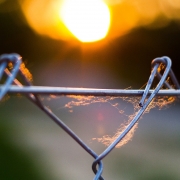Roses are red, violets are blue, declare me your password, and I will tell you I love you.
Valentine’s day has come and gone and with the twang of Cupid’s bow, another Internet scammer snags a victim.
Those romantic souls at the US Federal Bureau of Investigation (FBI) say St Valentine’s day is a payday for scammers who are looking to steal more than just your heart.
In the States last year, at least 23,000 victims were ripped off by on line heart throbs, with losses totting up to $605 million.
“Confidence/romance scams have resulted in one of the highest amounts of financial losses when compared to other internet-facilitated crimes,” the FBI warns in a fresh romance alert.
“You should never hesitate to report if someone asks you for money, even if they do this outside of the dating service.”
Ongoing lockdowns due to the Covid pandemic appear to have blunted scammers’ success, likely because so much online dating today remains remote – as do romance scammers.
Over here in the UK authorities say romance fraud involving bank transfers increased by 20% in 2019. The sum total of losses reported by victims over that 11-month period was $25.5 million, or an average of $10,800 per victim.
So, for the hard-nosed but possibly soft-hearted readers of our blog here’s a few tips to stop a scammer from breaking the bank and possibly your hear.
Rules for secure online dating. Never, ever:
- Send online dates money, however desperate your new Nigerian sweetheart needs the money to provide an operation for their poorly granny.
- Give access to your bank account.
- Take a loan out for online dates.
- Provide copies of your personal documents such as passports or driver’s licenses.
- Invest your own money on their behalf or on their advice;
- Agree to receive and/or send parcels on their behalf – such as laptops and mobile phones.








Leave a Reply
Want to join the discussion?Feel free to contribute!